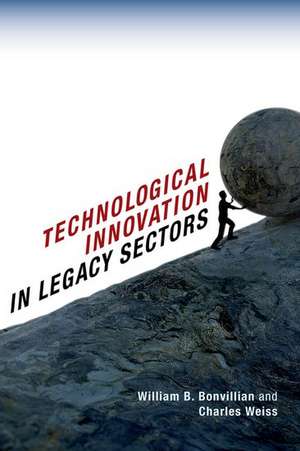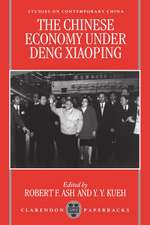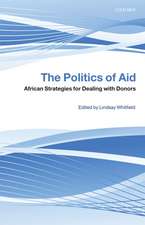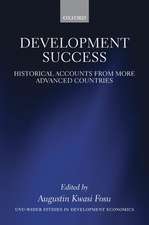Technological Innovation in Legacy Sectors
Autor William B. Bonvillian, Charles Weissen Limba Engleză Hardback – 29 oct 2015
Preț: 455.13 lei
Preț vechi: 595.27 lei
-24% Nou
Puncte Express: 683
Preț estimativ în valută:
87.09€ • 91.16$ • 72.49£
87.09€ • 91.16$ • 72.49£
Carte tipărită la comandă
Livrare economică 20-26 martie
Preluare comenzi: 021 569.72.76
Specificații
ISBN-13: 9780199374519
ISBN-10: 0199374511
Pagini: 384
Dimensiuni: 155 x 236 x 25 mm
Greutate: 0.48 kg
Editura: Oxford University Press
Colecția OUP USA
Locul publicării:New York, United States
ISBN-10: 0199374511
Pagini: 384
Dimensiuni: 155 x 236 x 25 mm
Greutate: 0.48 kg
Editura: Oxford University Press
Colecția OUP USA
Locul publicării:New York, United States
Notă biografică
William B. Bonvillian is Director of the MIT Washington Office. Previously, he served as a senior advisor in the U.S. Senate and has taught technology policy at Georgetown, Johns Hopkins and MIT. He has served on a National Academies' Board and four Committees, received the IEEE Distinguished Public Service Award and was elected a Fellow of the American Association for the Advancement of Science. He is a frequent speaker on science and technology policy topics. Early in his career, he served as a Deputy Assistant Secretary of Transportation, and was a partner at a major national law firm.Charles Weiss was Distinguished Professor of Science, Technology and International Affairs (STIA) at the Georgetown University School of Foreign Service until his retirement in 2014. He was STIA director from 1997-2006. He was the first Science and Technology Adviser to the World Bank. He is a Fellow of the American Association for the Advancement of Science and a Member of the Council on Foreign Relations, and was adjunct professor at Princeton, Johns Hopkins, and the University of Pennsylvania, and course director at the Foreign Service Institute.











